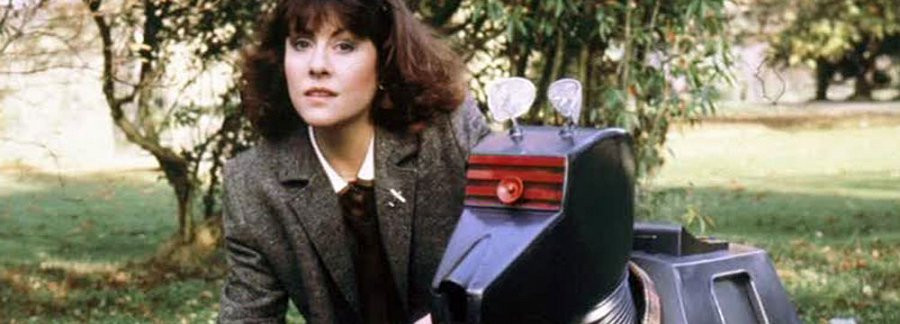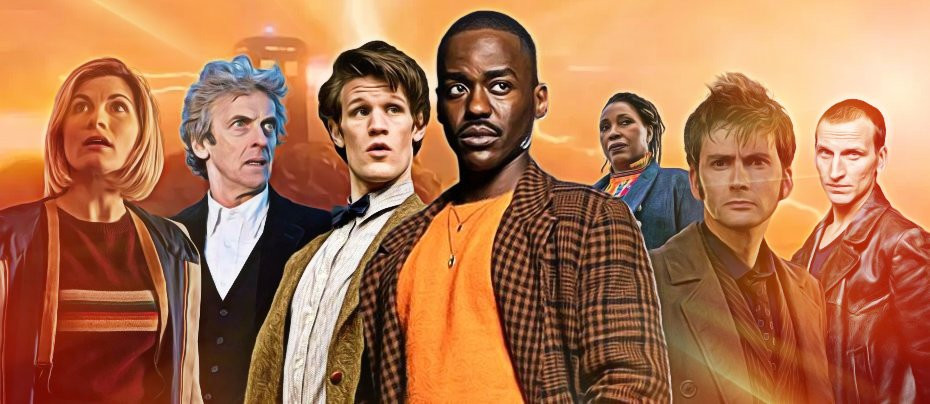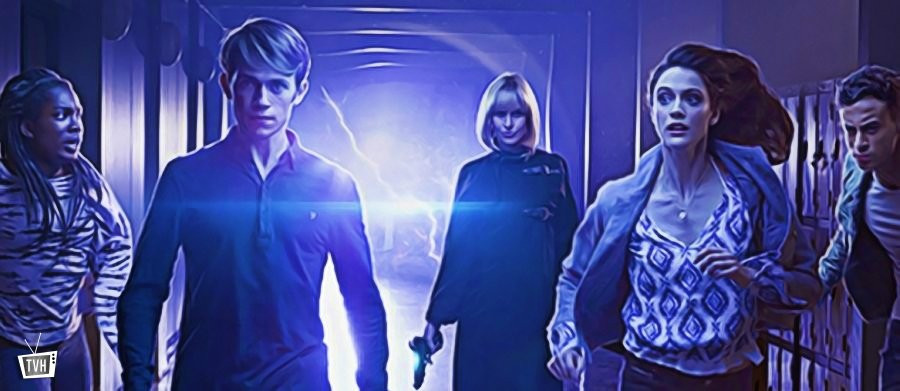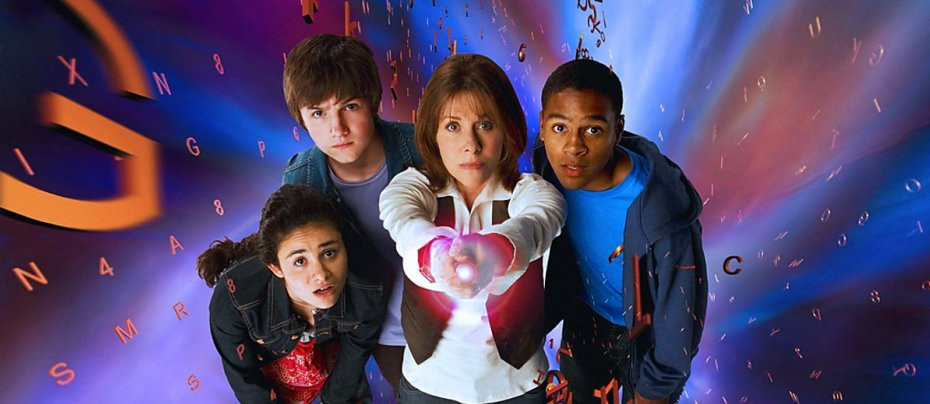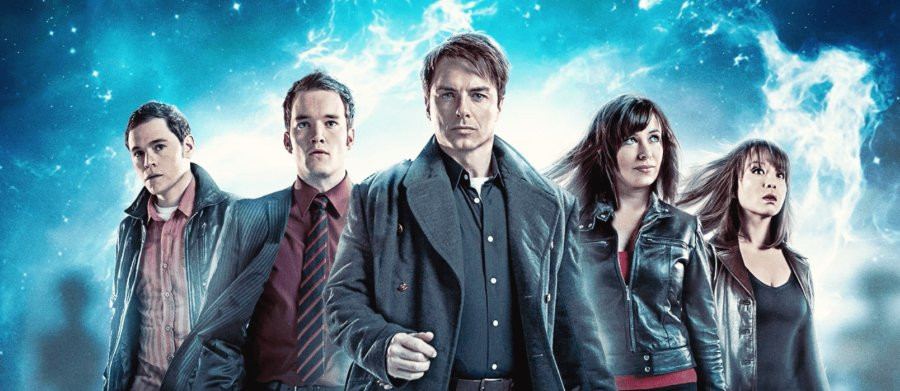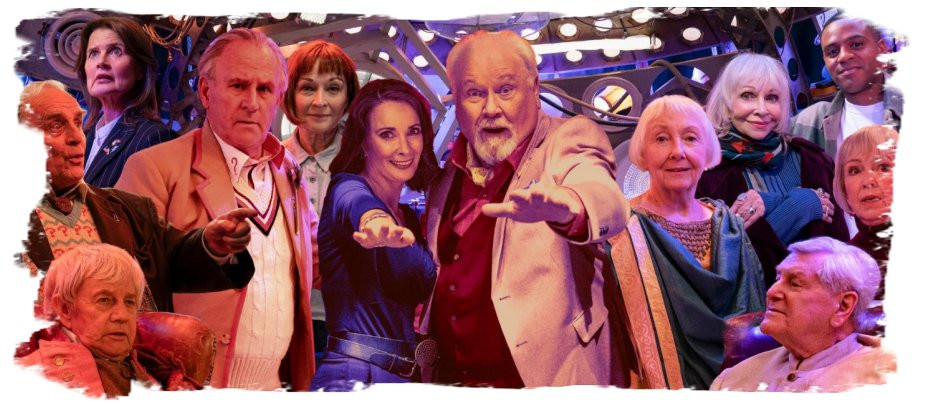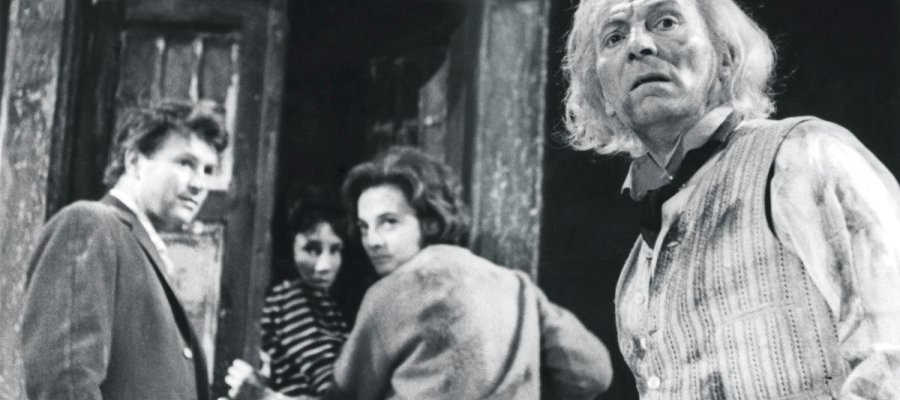The Mind Robber
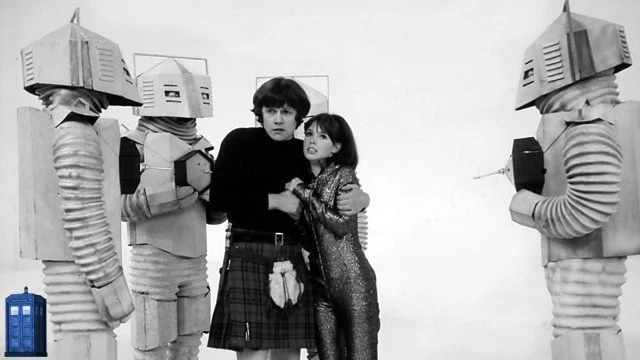
It's arguable that, during its fifth and sixth seasons, Doctor Who had become quite formulaic. A new serial would bring a new setting, but the same old monster-filled run-arounds. However, there are a good few stories within Patrick Troughton's tenure that stick out as something rather different. The Mind Robber is a perfect example, a story that is simply full of imagination.
It all starts typically enough, with the TARDIS under threat from molten lava on the planet Dulkis, trailing on from the previous serial, The Dominators. The TARDIS tries to escape, the heat and strain causing mercury vapour to fill the control room. However, even this potentially toxic problem is swiftly forgotten, for the Doctor is forced to drop the TARDIS out of time and space altogether. For the first time since The Celestial Toymaker, two and a half years previously, Doctor Who takes a 'sideways' trip, entering a realm beyond the recognisable locations of past and future.
The first of the five episodes is by far the most successful, in spite of being a hastily scripted filler piece, largely confined to the TARDIS. A frightening air of the unknown permeates the proceedings; it's an episode that is truly a joy to watch for the first time, unaware of just what will happen next. An ear-piercing whine penetrates the ship, while images of home appear on the scanner, seducing Jamie and Zoe into leaving the relative safety of the TARDIS. Beyond the ship is nothingness, a void space, a vast, empty chamber. Yet it has substance, gravity and surface, and even a form of intelligence; white robots patrol the space, emitting a constant, deafening buzz. The soundscape here is incredible; the jumble of noises sound, for an indefinable reason, simply wrong. Zoe, out of sight, screams, her cry carrying into the TARDIS, rousing the Doctor from his meditation and forcing him to leave the TARDIS himself. A disembodied whisper intones him to go on, and when he does find his friends, they are altered, zombie-like and dressed in white, as if they have been drawn into the ranks of the robots themselves. It's all very unsettling.
Once the Doctor has brought his friends back from this no-place, and into the TARDIS, things only get worse. While Jamie is able to fall asleep - something he does very often in stressful situations - the Doctor looks palpably frightened, and we know that things are very wrong. Jamie dreams of a unicorn, prefiguring later events (and possibly tempting Blade Runner fans to come to erroneous conclusions). Then, without warning, the TARDIS explodes, its panels breaking apart and drifting through the blackness of the outer void. Never before in the series has the TARDIS seemed so vulnerable, so violable. The console spins in the void, Jamie and Zoe clinging on for dear life. Zoe screams, terrified - although the indelible image from this scene will always be her delightfully cat-suited derriere. It's what she's screaming at that's frightening - the Doctor, drifting helplessly, insensible. Mist envelops them, and one of Doctor Who's greatest cliff-hangers ends the episode.
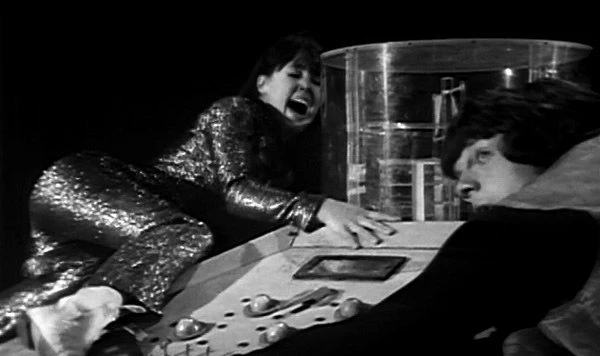
After that wonderful opening, the following four episodes struggle to make as much impact. If they had followed on from The Dominators, the adventures in the Land of Fiction would have come as a startling change of direction; after the trip into the void, they seem quite reassuring. While the first episode is surreal, the remainder are simply odd. Nonetheless, they push the story forward, allowing our heroes to finally enter an adventure. Whatever the void is, it is simply the first stage of entry into another world, a world where storybooks and fairy tales come to life. The Doctor, Jamie and Zoe appear, separately, in a maze, with no knowledge of how they got there. From here on out, they are plunged into a series of peculiar adventures. Sinister children assault the Doctor with riddles. Jamie is turned into a cardboard cut-out - the sort of thing you can buy in Forbidden Planet these days - and even loses his face. Notoriously, this was done so that actor Frazer Hines could take time off for illness, while Hamish Wilson takes his place. Jamie doesn't seem too put out by the existential horror of his face and voice changing, and the Doctor manages to avoid giving away that it was entirely his fault for messing up reconstructing him!
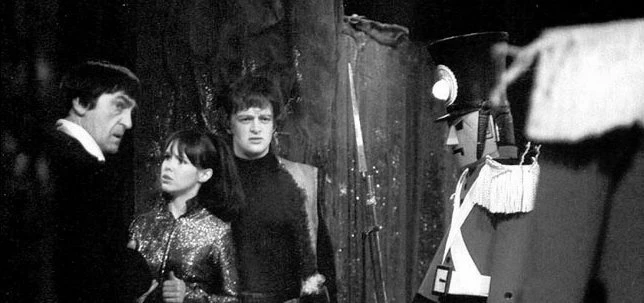
A strange, fairytale logic comes into play. In a forest of words, problems are solved as if they were newspaper puzzles, and puns have the ability to influence the environment. Clockwork redcoats march through the maze. Lemuel Gulliver arrives, acting as a local guide of sorts, only able to speak in lines and fragments from Swift's Gullivers' Travels. Bernard Horsfall copes admirably in such a peculiar role, making Gulliver an oddly likeable character. A wonderfully sardonic Rapunzel lets down her hair, allowing our heroes to climb up and down it as they wish. "I'm quite used to it, actually" she says. "You might as well, everyone else does." However, some later additions make little sense; Cyrano de Bergerac and Blackbeard were real people, historically recorded. Were the writers trying to imply that the lives of these individuals had become overtaken by the fictionalised, romanticised accounts of their adventures? Or did they just not realise?
Mythical beasts assail our heroes, only defeated when they refuse to believe in them. A statue of Medusa slithers into life in an impressive early use of stop-motion; it's not quite Clash of the Titans, but it's still very effective. A rather unconvincing unicorn arrives, bringing Jamie's dream to life and shedding talcum powder all over the set, while the Minotaur is at its best in silhouette, before we can see the actual costume. It's the first of many such beasts in Doctor Who, and they will get better.
The tactic of closing ones eyes and shouting "It doesn't exist!" is a reliable one when faced with these fictional monsters, but does become a boring and easy get out strategy very quickly. Thankfully, there's a loophole; when the Doctor is faced with a character he's never heard of, he has no knowledge of its fictional nature and therefore cannot 'disbelieve' in it enough to annul it - although he is able to remove a scientifically implausible raygun. The Karkus - sorry, zer Karkus - is very odd, a Teutonic superhero in a muscular bodysuit, who comes across as nothing so much as a bizarre prediction of a certain Austrian actor, famed for his action roles in the Eighties and Nineties. However, I am struggling to recall the Karkus's adventures in the Hourly Telepress, that well-known publication from the year 2000. Thankfully, Zoe is able to beat him in the world's cutest, least convincing fight scene.
Throughout this excursion into the realms of fiction, someone is watching the travellers. While this is a fantasy environment, it is monitored from a science fiction styled control room. The Master is to blame for the events in the Land of Fiction... only it's not the Master, who hadn't been thought up yet at this point in the series. Instead, it's a dotty old author in a Victorian skullcap and fingerless gloves, whittering on to himself as he writes adventures for the Doctor and his friends. He has been brought here for his imagination, and he later boasts that he wrote half a million words over twenty-five years, which isn't actually very impressive at all. The Master is, however, nothing more than a slave to a megalomaniacal computer, the Master-Brain, a disappointingly ordinary villain to have masterminded this affair. It speaks in rasping tones through the Master's own voice, and seems powerful yet terribly confused. One minute it wants to fictionalise the Doctor, making him into a mindless character, the next it wants him to take over as the new Master of Fiction, an ageless imaginer. It claims to need human imagination, utilised for its own ends, but expresses a need for human obedience, and finally decides that it just wants to take over the Earth and kick humanity out. Anyone would think it was making it up as it goes along.
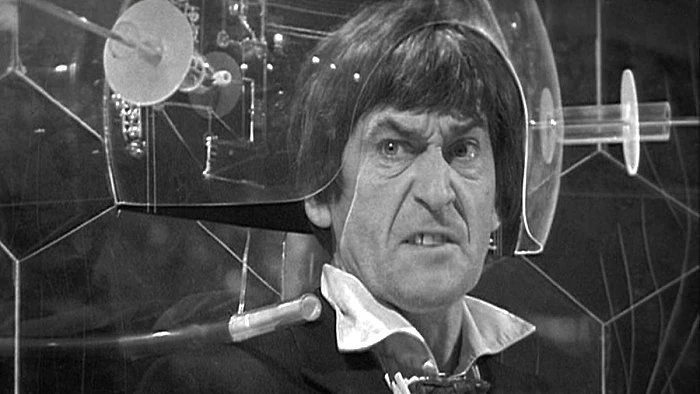
It's a strange story, no doubt about it. An opening episode of surreal horror, followed by four, very brief, instalments of straightforward puzzles and swordfights for the under-eights. Events in the land becomes samey and predictable far too quickly. Yet it's all tremendously watchable, thanks to wonderful performances by the regulars. Wendy Padbury as Zoe provides the brains, all the while being as cute as a button, while Frazer Hines, when not replaced by an understudy, gives Jamie all the vigour, enthusiasm and foolhardiness we've come to love. Patrick Troughton makes it, as always giving a beautiful performance as the Doctor, at once thoughtful and childlike, impossible to take your eyes off as he dominates his every scene. The story never slows down for introspection, preferring to charge from one set piece to the next, drawing the Doctor and friends ever closer to their enemy for the final confrontation.
With the Master-Brain computer finally defeated, in a miserably easy attack of enthusiastic button-pressing, the Land of Fiction begins to collapse around our heroes. Dragging the freed Master of Fiction with them, they attempt to return to the TARDIS, which reforms itself in front of our very eyes. Many questions remain unanswered. Just what exactly was the Master-Brain for? Who built it? How did this world of myth and fiction come to be? We may never know. Then again, the serial's end is very ambiguous. We never see the travellers return to the TARDIS and are simply told that they will end up where they belong. In the next episode, they're back in the control room as if they never left. The Master has vanished from their side, and there's no mention of their adventures in fiction. There's always the possibility that none of this was real, that it's all some strange fever dream of the Doctor's.
That's what happens when you inhale mercury.
Review by Daniel Tessier


